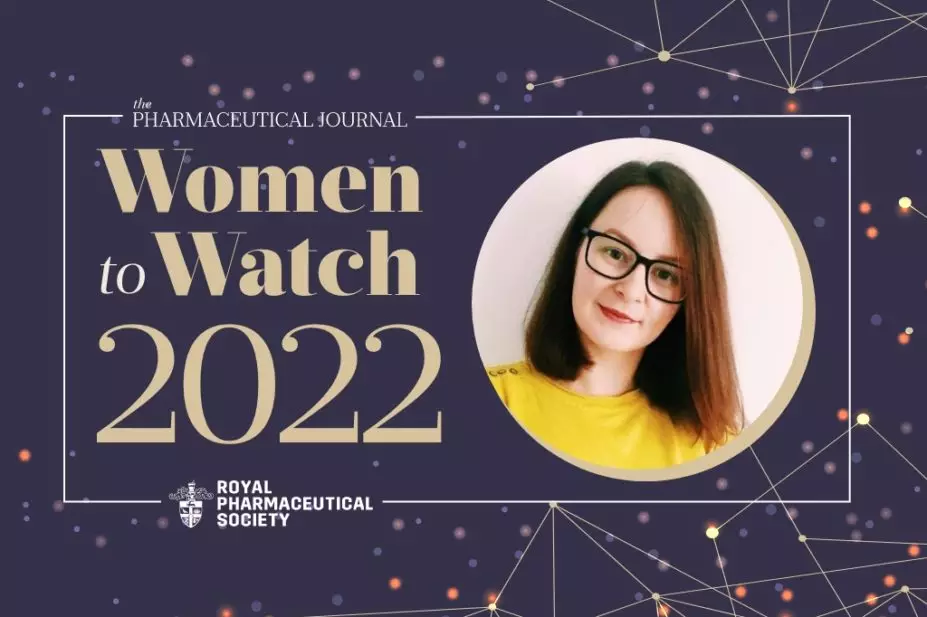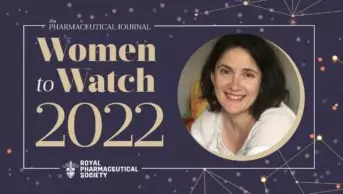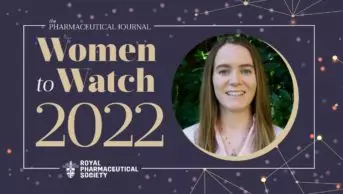
Kristina Medlinskiene / Shutterstock.com
Moving to a new country to do a pharmacy degree, with little money to her name, was daunting for Kristina Medlinskiene, who grew up in Lithuania.
“I am from a small town where people don’t really go abroad to study. No one believed I would go.” After first moving, she would often feel close to tears, worrying her English was not good enough, but she soon settled in, working at Boots to support herself through her degree at the University of Reading.
What really interested Medlinskiene was research, but with no obvious opportunities after graduating in 2012, she started working as a rotational pharmacist in Hull, taking on audit and service improvement projects, publishing and speaking at conferences whenever possible.
When the opportunity for a funded PhD came up at the University of Bradford and Leeds Teaching Hospital, she took it as a sign. For four years this meant travelling from Hull to Bradford every day: “It was a commitment, but it didn’t really bother me because I knew this is what I wanted to do,” she says.
Medlinskiene secured funding from Pharmacy Research UK for her project investigating the barriers to uptake of new direct oral anticoagulant drugs and, at the same time, taught part-time at the university. While there, she introduced student-led healthcare checks to boost student confidence and communication skills, publishing a letter in The Pharmaceutical Journal about the project .
Work from her PhD won an award for ‘outstanding publication’ at the University of Bradford, despite her having to finish her thesis in the evenings, owing to her full-time job, and with a baby at home. The research made full use of patient involvement, with interviews with patients taking (or not taking) the medicines informing her approach.
“It was really eye-opening,” she says of the research, which looked at prescribing in Bradford, Leeds and Sheffield. “I think, without the information from the interviews, you wouldn’t be able to tell that is quite complex to get the medicine used in practice.”
What drives me is to make sure we deliver the best service we can and there is equity for the patients to receive the treatment that’s available
Others are now picking up on her PhD as an example to encourage other students to have real, rather than what can often be tokenistic, patient and public involvement in their research project. “What drives me is to make sure we deliver the best service we can and there is equity for the patients to receive the treatment that’s available,” says Medlinskiene.
She now works as the advanced clinical pharmacist in education and training at Hull University Teaching Hospitals NHS Trust. There, she has developed a large programme of work to embed and encourage pharmacists to do more research. “When I was here as a junior pharmacist, there was no in-practice research, no people I could go and ask about ethics or which conferences to speak at, and I knew we really needed to do more.”
Her research strategy, focused not on clinical trials but practice research and audit, was approved in January 2022. “It is an ambitious strategy, but it’s better to be ambitious and strive for it,” Medlinskiene says.
With the pressures everyone in the NHS is under, she knows that research is not often a priority but her goal is to remove some of the barriers and get people excited. In 2021, she organised a trainee pharmacy research day for the Yorkshire and Humber region, in which she mentored sixth form students who want to become pharmacists; it was a roaring success.
Medlinskiene has also introduced the concept of longitudinal placements at her trust — where students spend 13 weeks on a base ward, rather than doing 4-week rotations — which, from 2022, is being used for all trainees completing 52-week foundation training. Her latest projects have focused on race equality and sustainability. “Now I’m trying to establish race equality champions,” she says. “I’m very acutely aware that I am white and I’m not from an ethnic minority but I would like to see myself as an ally.”
Looking back to when she first came to the UK, not even knowing what pharmacy in England was like, Medlinskiene is proud of how far she has come. “When you’re young, you dare to take risks and you’re not afraid. I think we’re really driven by optimism at the time, and I just thought everything was possible.” She was not wrong.
Panel comments
“Clearly impressive, supporting others and working on inclusion”
“Dedication to support the next generation of pharmacists”
“An accomplished pharmacist”
Meet the rest of The Pharmaceutical Journal’s Women to Watch 2022 here
You may also be interested in

Pioneering pharmacy professionals celebrated in 2022 ‘Women to Watch’ list

Andreea Blaga
